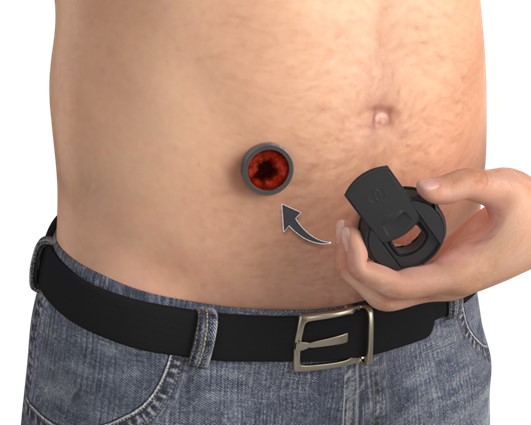A nurse is assisting in the plan of care for a client who has constipation after receiving opioid medication for incisional pain. Which of the following actions should the nurse take first?
Auscultate the client's abdomen for bowel sounds.
Provide the client privacy with a set time to defecate.
Administer a fiber-based laxative to the client.
Encourage the client to increase oral intake of fluids.
The Correct Answer is A
The correct answer is choice A. Auscultate the client's abdomen for bowel sounds. This is the first action the nurse should take because it provides information about the client's bowel motility and function. Opioid medications can decrease bowel motility and cause constipation. The nurse should assess the client's abdomen before implementing any interventions.
- Choice B is not correct because providing privacy and a set time to defecate is a nonpharmacological intervention that can help prevent constipation, but it is not the first action the nurse should take.
- Choice C is not correct because administering a fiber-based laxative is a pharmacological intervention that can help treat constipation, but it is not the first action the nurse should take. The nurse should also consider the client's fluid intake and preference before giving a laxative.
- Choice D is not correct because encouraging the client to increase oral intake of fluids is a nonpharmacological intervention that can help prevent constipation, but it is not the first action the nurse should take. The nurse should also consider the client's fluid balance and medical condition before giving fluids.
Nursing Test Bank
Naxlex Comprehensive Predictor Exams
Related Questions
Correct Answer is A
Explanation
The correct answer is choice A, "I will attend a support group to help me handle difficulties when they occur." This statement indicates that the client is accepting the situation and taking proactive steps to manage any difficulties that may arise. Choice B is incorrect because relying on someone else to empty the bag suggests possible denial or avoidance of the situation. Choice C is incorrect because normal bowel movements after an ileostomy may not happen. Choice D is incorrect because it is not related to acceptance of the ileostomy. Choice B is not correct because it shows possible denial or avoidance of the situation. Choice C is not correct because normal bowel movements may not occur. Choice D is not correct because it is not related to acceptance of the ileostomy.

Correct Answer is A
Explanation
The correct answer is choice A: Elevate the head of the client's bed for 1 hr after the feeding. This is because elevating the head of the client's bed to at least 30 degrees can help prevent aspiration and gastric reflux. Choice B is incorrect because administering the feeding solution at a cold temperature can cause discomfort and diarrhea. Choice C is incorrect because rotating the jejunostomy tube once per day can cause irritation and trauma to the stoma site. Choice D is incorrect because flushing the tube with 90 mL of sterile water before and after the feeding is not necessary as long as the tube is adequately flushed before and after each feeding.
Explanation for why the other choices are not answers: B – Administering the feeding solution at a cold temperature can cause discomfort and diarrhea, so it should not be done. C – Rotating the jejunostomy tube once per day can cause irritation and trauma to the stoma site, so this is not the correct action. D – Flushing the tube with 90 mL of sterile water before and after the feeding is unnecessary to do as long as the tube is adequately flushed before and after each feeding. Thus, this is not the correct answer.
Whether you are a student looking to ace your exams or a practicing nurse seeking to enhance your expertise , our nursing education contents will empower you with the confidence and competence to make a difference in the lives of patients and become a respected leader in the healthcare field.
Visit Naxlex, invest in your future and unlock endless possibilities with our unparalleled nursing education contents today
Report Wrong Answer on the Current Question
Do you disagree with the answer? If yes, what is your expected answer? Explain.
Kindly be descriptive with the issue you are facing.
